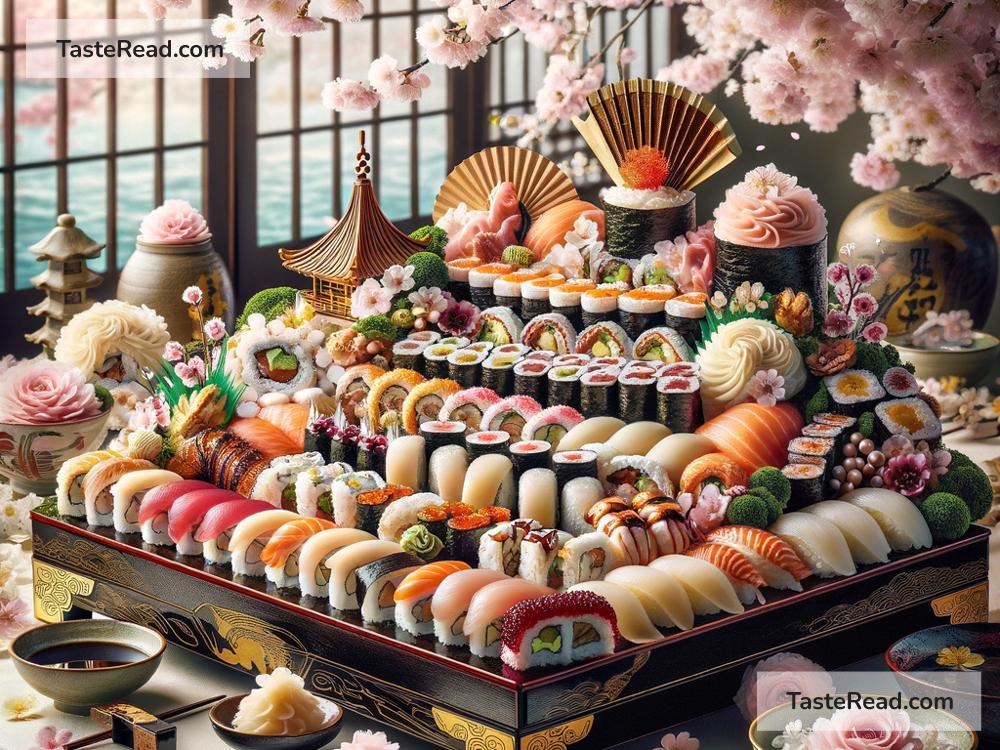The Joyful Symbolism of Sushi in Japanese Celebrations
In the heart of Japanese culture lies a rich tapestry of traditions and customs, each carrying its own unique significance and beauty. Among these traditions is the culinary art of sushi, a delicious and intricate dish that has transcended the confines of Japanese cuisine to captivate taste buds around the globe. However, to truly appreciate the depth of sushi, we must delve into its symbolic resonance in Japanese celebrations and understand how this dish is much more than just a delight for the palate.
The Essence of Sushi
Sushi, at its simplest, is a dish that combines vinegared rice with a variety of ingredients including seafood, vegetables, and occasionally tropical fruits. The artistry in sushi making, from the precise slicing of ingredients to the delicate assembly, reflects a deep respect for both the food and the dining experience. But beyond its aesthetic and gastronomic appeal, sushi holds a significant place in the heart of Japanese festivities.
Celebratory Symbolism
In Japanese culture, sushi is not merely food; it is a symbol of joy, prosperity, and longevity. Its role in celebrations can be traced back to centuries-old traditions, where various forms of sushi were served during festive occasions as a means of expressing wishes for happiness and good fortune.
Joy and Prosperity: Nigiri and Sashimi
Nigiri (hand-pressed sushi) and sashimi (sliced raw fish) are among the most popular forms of sushi and are essential dishes during celebrations. The freshness and quality of the fish used in these dishes are paramount, symbolizing the purity and freshness of a new beginning. Serving these at celebrations like New Year’s Day, weddings, or milestone birthdays is akin to offering a taste of prosperity and abundance. The vibrant colors of the fish, ranging from the deep blues of tuna to the bright pinks of salmon, also add to the festive atmosphere, embodying the joy and vibrancy of life’s special moments.
Longevity and Health: Maki and Futomaki
Maki (rolled sushi) and futomaki (thick rolled sushi) are not only delightful to eat but also carry profound meanings within their tightly rolled layers. These forms of sushi often contain a variety of ingredients, symbolizing the complexity and richness of life. In particular, futomaki is famous during the Setsubun festival, where people eat the rolled sushi while facing the lucky direction of the year, as determined by the zodiac. This practice is believed to bring good health and longevity, demonstrating sushi’s role in invoking blessings for a long and fulfilling life.
Unity and Harmony: Temari Sushi
Temari sushi, named after the traditional Japanese temari balls, are small, ball-shaped sushi pieces that epitomize aesthetic beauty and craftsmanship. These are often made during celebrations, such as the Hinamatsuri (Girls’ Day) festival, to express wishes for harmony and happiness. The colorful decorations and the round shape of temari sushi symbolize unity and the coming together of families and communities, reinforcing the importance of social bonds in Japanese culture.
Seasonal Celebrations: Hina Sushi
Seasonal variations of sushi also play a crucial role in Japanese festivities. Hina sushi, for example, is specially prepared for the Hinamatsuri festival. This type of sushi beautifully incorporates seasonal ingredients, reflecting the changing landscapes and the passage of time. Eating hina sushi is a way of celebrating the beauty of nature, the growth of young girls into adulthood, and the wish for their happiness and prosperity.
Beyond the Celebration
While sushi’s symbolism in Japanese celebrations is deeply rooted in tradition, it also represents the adaptability and resilience of culture. As sushi has traveled across continents and oceans, it has been embraced and reinvented by different cultures, each adding its own nuances to the dish. However, the core values of joy, prosperity, health, harmony, and respect for nature that sushi embodies remain universal, resonating with people around the world.
Conclusion
Sushi is much more than a culinary delight; it is a vibrant thread woven into the fabric of Japanese culture, symbolizing the deepest human wishes for joy, abundance, health, and unity. Its presence in celebrations is a testament to the enduring power of food to bring people together, to commemorate life’s milestones, and to express hopes for the future. As we enjoy sushi, let us savor not just its flavors but also the rich cultural heritage and symbolism it carries, inviting us to partake in a celebration of life itself.


